Ok. Typical female again. One day after I posted my blog raving about the new woman in my life, I finally had my first argument with her. I was coming back from an evening dinner, and was somewhere in the middle of town. Had left her in the car, as usual. She must have been upset, stubborn, did not want to help me anymore. Did not even want to speak to me. No sound, no vision. Did not switch on. And without apparent reason.. Ha. Typical!
I tried to touch all parts of her, which I knew normally would turn her on, but nothing helped. Not a sound. Not one reaction. My GPS-woman was dead. So I had to do it by myself. I mean the driving. And you know what? It worked out well too. I can do without her, I learned. I don’t have to be dependent on a woman. Yeah!
But when I came home, I gave her a mouthful. The cow. Ha! “You think I would not be able to live without you, right? Well, I did! I don’t really need you, you know!”
Even though on the way home from Rome to Fiumicino, I missed an exit on a roundabout, and got back onto the highway to Rome – the opposite direction of the one I just came from. I did the logical thing any man would do, took the first exit,. Which seemingly was the one for the highway to Civitavecchia. First exit: ten kilometres further. And that exit had a toll booth. I paid, turn around, paid again to get onto the highway and drove back home. I did 60 km instead of the usual 20, but hey, *I could live without her*!
During the whole argument, my flood of insults, arguments and finally, pleading and begging, she kept calm. Did not say a word. Did not move. Did not switch on. Even shaking her did not help.
A typical woman. You start depending on them, and then they run off. Abandon you, shatter your life, destabilizing your “raison d’ être”, your reason to live.
I threatened to replace her with the Italian woman which was also available to me, at the flip of a switch (the same Italian woman I tried out just for a while, just to get the feeling of it, when I bought the GPS), even though that one has a sharp bitchy voice like a ninety year old grandma who forgot to put in her false teeth. It really made it difficult to undershhtand the direcshhtionshh. Or the German one, who – yep you guessed it – sounds like she would whip me if I’d made a mistake by not following her explicit instructions.
No, truth being told, between you and me, dear reader, my Flemish woman, my “Zoeteke” is my GPS-woman of choice. But I never really told her. You know how women are…
Then I discovered a little hidden button labelled ‘Reset’.. Maybe that could help bringing my woman back into my life. But njet.. Nada. Niente. Zitch…
It was back to the manual. The book about ‘Life with women’, ‘The dummies guide on How to Treat Women’, my Bible. My Koran. My Talut: The Mio 710C manual.
It showed there was a way to disconnect the battery and do a hard reset, to start all over again.
And … plop… All of a sudden the world looked different. There was hope for all of us, for world peace, to end child hunger and free love for everyone: my “Zoeteke” came back to life. She greeted me just as she did any other morning, with a sweet: “No GPS signal”. Like nothing happened. Like there had not been an argument, not a case where she abandoned me without a reason. Like there had been no insults, no threads, no flirting with other GPS-women from my part.
It was clear she wanted to give me another chance. And me, I did not mention any of the trouble neither. I did not tell her how I missed her. How I really wanted her more than any of the other women in my GPS. How I got so lost without her. I mean 60 km instead of 20 km to get back home, is pretty “lost” if you know what I mean! (and those quotes around “lost”, are of the kind with double-finger gestures and eyebrows slightly raised!)
I learned my lesson: I guess the worse for a woman is to be taken for granted. How often do we, men, not forget that there is a woman living with us. Someone who guides us through the myriad, the chaos, the labyrinth and pitfalls of life. While driving or not. Someone who is always there when we need them. At the flick of a switch. Always with a smile and with warm love… And we keep them locked up in our cars for days in a row?
From that day on, my relationship with the ‘new woman in my life’, changed. I smile at her in the morning. When she greets me with “No GPS signal”, I now answer “Yeah it is a lovely morning, isn’t it?”. And when she gives me directions, I always thank her. I chat to her, while driving in the car, to show I do not take her for granted. When I come home, I don’t leave her in the car anymore, but give her a place of honour in the house. I even bring flowers for her, from time to time. And look. She loves it. Look at the smile!
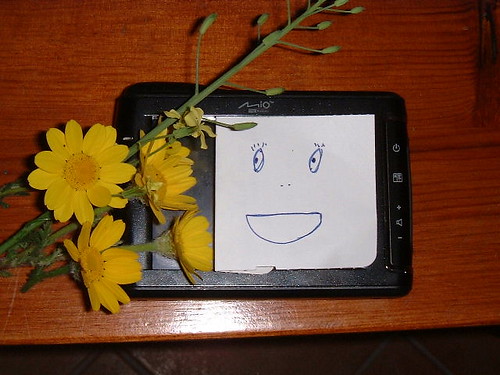
Robert, my room-slash-house mate, started smiling at her too. I warned him: “Robert, she is mine. Stay away…”
Do you think I should keep an eye on them? Maybe hire a detective.. Just to see he does not fiddle with her. You know how women are once you push their buttons. And I am sure that Robert would not be able to resist her smile and deep exotic voice.. Even though it would take a while before he discovers how she gets completely ecstatic when you speed with her through the multiple radar checkpoints, climaxing into a digital orgasm of chirping high pitched sounds as if she is loosing herself. I will not tell anyone. Will keep it my secret.
One thing is for sure. If Robert touches her, I want pictures to prove it. Now that I think of it, I *will* hire that private detective. The woman in my GPS? Ah, the GPS-cheat, you mean?
Read the full post...
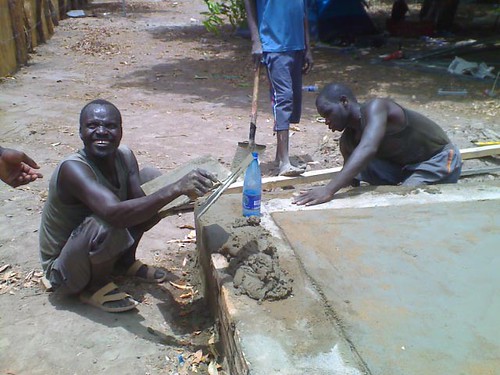
 And when people generalize the criticism and put 'all UN organisations' in one garbage can, I invite them to look at these pictures. These are our international staff living quarters in Bor, South Sudan. A tent. The bed takes up half of the space. No closets or cupboards. In the evening, one needs to go with a stick through the clothes and stuff stacked on the ground, to make sure there are no scorpions, snakes and other venim hiding in between. It gets hot. REAL hot in South Sudan. And humid. A fan is a luxury. AC is out of the question.
And when people generalize the criticism and put 'all UN organisations' in one garbage can, I invite them to look at these pictures. These are our international staff living quarters in Bor, South Sudan. A tent. The bed takes up half of the space. No closets or cupboards. In the evening, one needs to go with a stick through the clothes and stuff stacked on the ground, to make sure there are no scorpions, snakes and other venim hiding in between. It gets hot. REAL hot in South Sudan. And humid. A fan is a luxury. AC is out of the question. 
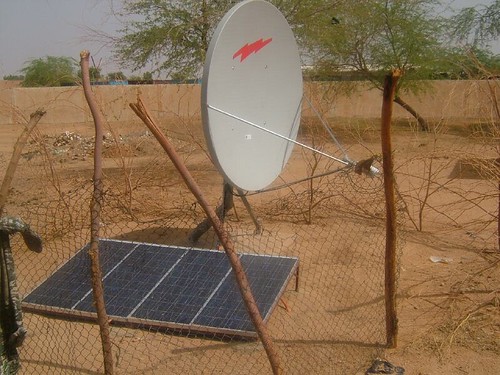

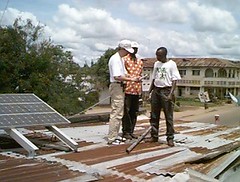



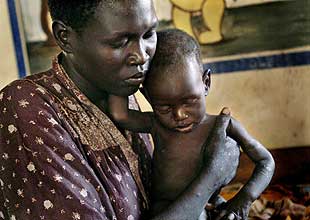
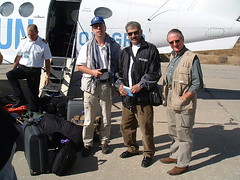
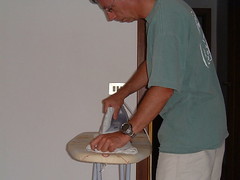
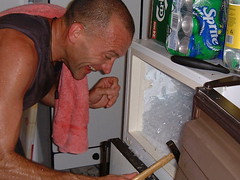

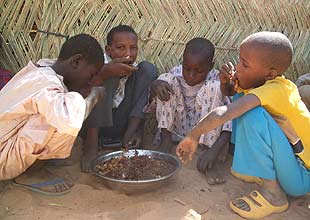
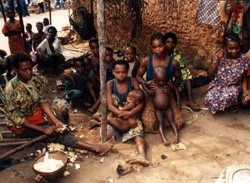

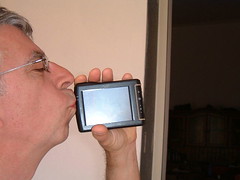
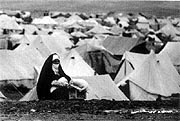
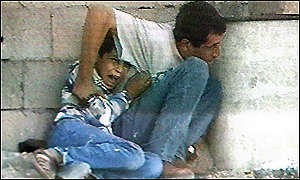
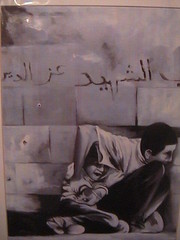



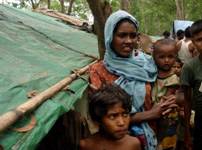
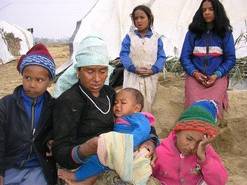
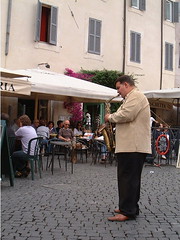
 Peter. Flemish, European, aid worker, expeditioner, sailor, traveller, husband, father, friend, nutcase. Not necessarily in that order.
Peter. Flemish, European, aid worker, expeditioner, sailor, traveller, husband, father, friend, nutcase. Not necessarily in that order.
The Road's Dashboard
Log in
New
Edit
Customize
Dashboard